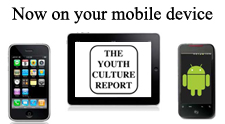DO I REALLY NEED TO KNOW ABOUT YOUTH CULTURE?
DO I REALLY NEED TO KNOW ABOUT YOUTH CULTURE?
By Walt Mueller
I think I’m your average looking fifty-six year old man. That might be why I get so many funny looks when I go to the mall. The cashiers and people in line behind me either think that I’m a crazed middle-aged maniac, some kind of creeper, or a terrible father. On one mall excursion several years ago I stood in line at the book store to purchase a stack of magazines including YM, Seventeen, Cosmo Girl, Teen, Rolling Stone, and Tattoo Savage. When I catch people curiously glancing back and forth between me and my armload of goodies I quickly utter what I’m sure comes off sounding like a pretty lame excuse – “I study youth culture for a living.” I can always tell what they’re thinking – “Yea, right.”
But is it really that important to know today’s youth culture? And why do I feel it’s so important to convince you as a youth worker to do the same? The answers are many. Here are four.
First, there’s a divine given that is non-negotiable. Youth workers have no option but to go into the world of their children and teens. Jesus said, “God authorized and commanded me to commission you: Go out and train everyone you meet, far and near, in this way of life. . . instruct them in the practice of all I have commanded you.” (Matthew 28:18-20, The Message). Today’s youth culture is a cross-cultural mission field that groans for redemption. While youth culture is a mission field that’s near (right in our own churches and homes!), it is also far – far from what we ever experienced or knew when we were passing through our own adolescent years. Our initiative must include the resolve to go to our teens, meeting them right where they’re at with the only message that will answer their groans.
Second, to go without knowing our kids and their culture is foolish. When one hears the divine call to foreign missions, they don’t immediately pack their bags, hop on a plane, arrive on the mission field, and jump right into preaching. Such an approach is a recipe for great frustration and certain failure. Instead, months or years are spent learning the native tongue and unique culture/customs of the audience. This “missiological” approach has biblical precedent. Read about Paul’s trip into Athens (Acts 17). Before Paul opens his mouth to preach, he walks through the city with his ears and eyes wide open – learning as much as he can about the Athenians and their world view. Effective ministry includes getting to know them and their rapidly changing world.
Third, we youth workers risk losing our ability to understand culture. The two biggest complaints we hear from today’s teens about their parents, the church, and adults in general are these – “They don’t listen” and “They don’t understand.” Their gripes are legitimate. If we don’t listen, we can’t understand. And if we don’t understand, they won’t want to listen to us. That’s not a good thing when we’re trying to help them hear and live God’s Truth. When we understand and can talk with them about their world, it’s much easier to connect.
And fourth, we’ve never been called to be separate from the world. In fact, Jesus demands the opposite. Knowing full well that we might be tempted to curl up in Christian complacency or circle the wagons, Jesus made it abundantly clear through his prayers that we are to be in the world, but not of the world: “I’m not asking that you take them out of the world, but that you guard them from the Evil One.” (John 17:15, The Message). We’ve got to learn that there’s a huge difference between being isolated and being different. If we were called to be isolated, Jesus would have never commanded us to go. He would never have commanded us to be salt and light. We’ve got to know about them, their music, their social networking pages, their friends, their movies, their magazines, etc.
Theologian Helmut Thielicke once wrote, “The Gospel must repeatedly be forwarded to a new address because the recipient is repeatedly changing places of residence.” Today’s youth culture is like a “Change of Address” form screaming out to youth workers and other adults. . . . “Please take note!” Are you listening?
Dr. Walt Mueller is the founder and President of the Center for Parent/Youth Understanding (CPYU), a nonprofit organization committed to building strong families by serving to bridge the cultural-generational gap between parents and teenagers. Visit CPYU on the web at www.cpyu.org.






